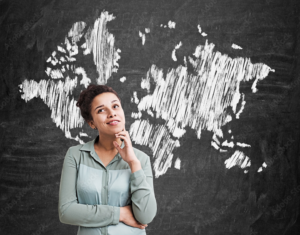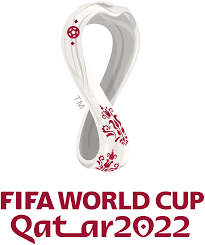Share
Art 1: The poets declare: no orphan, no effect-less, no pain has borders
Art. 2: The poets declare that in the indefinite universe stands the enigma of our world, that in this enigma stands the mystery of the living, that in this mystery palpitates the poetry of humans not one will be be dispossessed of the other!
Art. 1 : Les poètes déclarent : ni orphelin, ni sans effets, aucune douleur n’a de frontière
Art. 2 : Les poètes déclarent que dans l’indéfini de l’univers se tient l’énigme de notre monde, que dans cette énigme se tient le mystère du vivant, que dans ce mystère palpite la poésie des hommes : pas un ne saurait se voir dépossédé de l’autre !
- Déclaration des poètes, Frères migrants –
Talk about Chamoiseau’s book is never easy, especially once we talk about Frères Migrants. To do so, I wanted to start from the beginning of the end, from the declaration des poètes, which not only concludes the text, summarise the essence of this book. It summarises the essence of this book much more than the title Frère Migrants, because reading it, the reader would think that the main them it would be migrations and migrants. In part, yes, but the aim and soul of this book is somewhere else, is something else. It’s a s a cry for help, a wake-up call, a shock, a voice that (should) guides us.
Un homme qui crie n’est pas un ours qui danse !… avait tonné Césaire
A man who shouts is not a bear who dance! … had thundered Césaire
Unfortunately, the world, the people, us, everybody hasn’t understood yet. Chamoiseau’s aim is to help us closing our eyes and open our ears, so we will listen to the man.woman who is shouting and will help him.her.
Patrick Chamoiseau
Before analysing Frères Migrants, it’s important to talk, briefly, of his author, Patrick Chamoiseau and of his poetics, it will help the reader to understand the book.
Patrick Chamoiseau was born on 3 December 1953 in Fort-de-France, Martinique, where he resides. After his studies in Law (in Paris) we can back in his homeland where he started writing. In 1981 he published his first book “Delgrès : les Antilles sous Bonaparte” co-writed with Georde Puisy, but his masterpiece is without doubt Texaco, published in 1992, awarded with the Prix Goncourt in the same year.
Chamoiseau’s poetry is deeply and essentially influenced by his friend Edouard Glissant, with whom he created the Créolité, a philosophical, cultural and literal movement. The authors part of this movement question themselves about their origin and cultural identity. The créole culture has been originated by a process of brassage culturel (cultural intermingling) originated from the colonisation.
Cultural identity and “le language” are, so, at the base of Chamoiseau’s poetry. “Le langage” it should not be confused with the word language. “Le language” is the result of a cultural process, mixing languages, identities and representation. According to the author everybody should develop it’s own one. This peculiar utilisation of words helps the author to express another concept central in his poetry: opacity. According to Chamoiseau, human kind tries to completely understand everything and everybody. To do so, we analyse the reality with our own representation. However, our representation never fits completely with the reality, so we will never be able to completely understand the reality, a small amount of “opacity” will remain, we just have to accept it.
https://www.youtube.com/watch?v=WHXFxf-tK4U&t=2546s (If it is possible, I would like the video to appear in the mid of the page, like if it was a tweet. It’s a video of a round table which took place at the Emory University, in Canada, during which Chamoiseau explains his poetry, his origins and the origins of Créolité. The round table is in French but translated in English).
Frère Migrants
The book born from a statement and a will: as Chamoiseau explains, the European Government are not able (or at least they have not been able) to manage such an important phenomena as migration is. According to the author, it is now the duty of poets to give a poetic answer.
As said before, the reader could erroneously think that Frère Migrants talks about migration. In part it is true, but the main aim of the author is to criticise our society.
Qu’est-ce donc qu’agir ou que porter-manœuvre au-delà de l’urgence sans délaisser l’urgence ou rater l’essentiel, et sans considérer qu’au principe de ce drame règnent des forces invisibles ?
What is it, then, to act or carry-operate beyond the emergency without abandoning the emergency or missing the essential, and without considering that invisible forces are at the root of this drama?
Those invisible forces of which Chamoiseau speaks is the capital society and the paradigm du profit maximal (maximum profit paradigm).
Gagner gros, gagner plus, gagner autant que possible et sans autre souci ! Le tout-profit devenu immanent, démultiplié dans les sciences, les techniques et les trouvailles du numérique.
Earn big, earn more, earn as much as possible and without any other worries! The all-profit that has become immanent, multiplied in the sciences, techniques and digital discoveries.
According to the author, we should open ourselves not to the mundialisation but to the mondialité(https://geopolitique.eu/en/articles/world-globalization-and-mondialite/) in the meaning of Glissant.
Personal comment
Frères Migrants is not an easy book to read. Honestly, I wouldn’t consider it neither as a book. It’s a travel, an auto-analysis of our-selves and our society. This book is like the Occam’s razors, the author accompanies the reader along the travel to the real essence of human kind, accompanies the reader to the re-discovery of a true humanity.



Average Rating